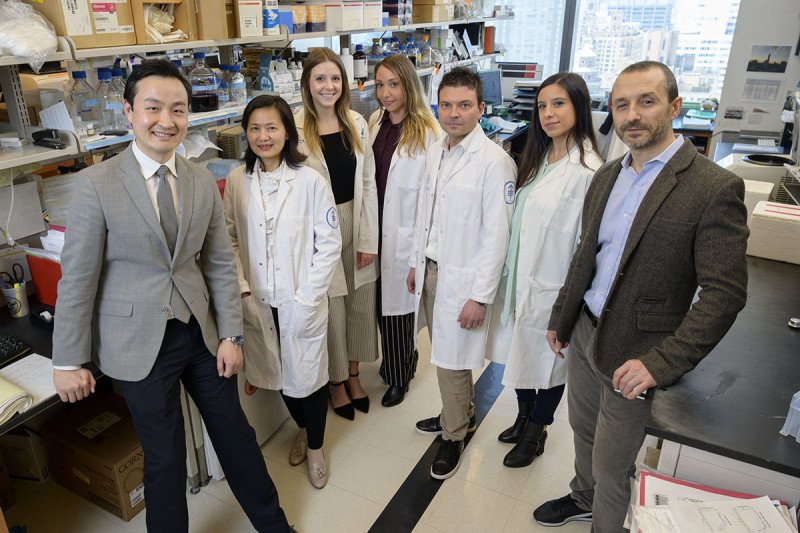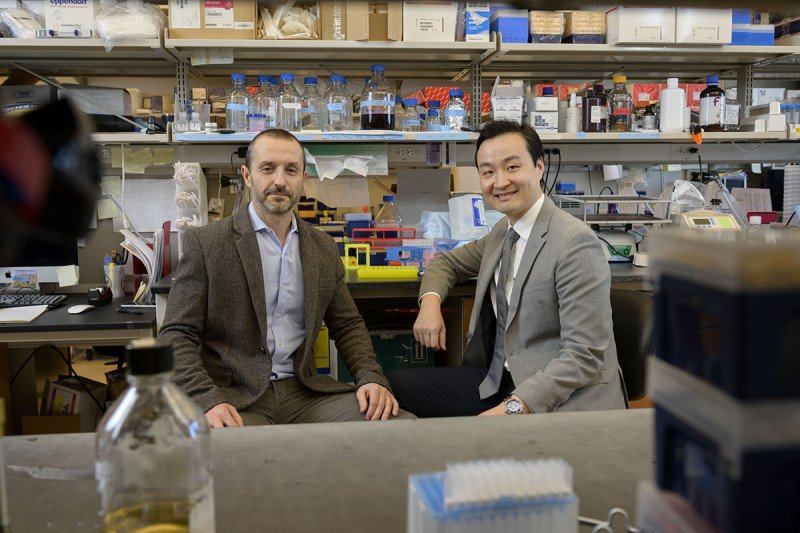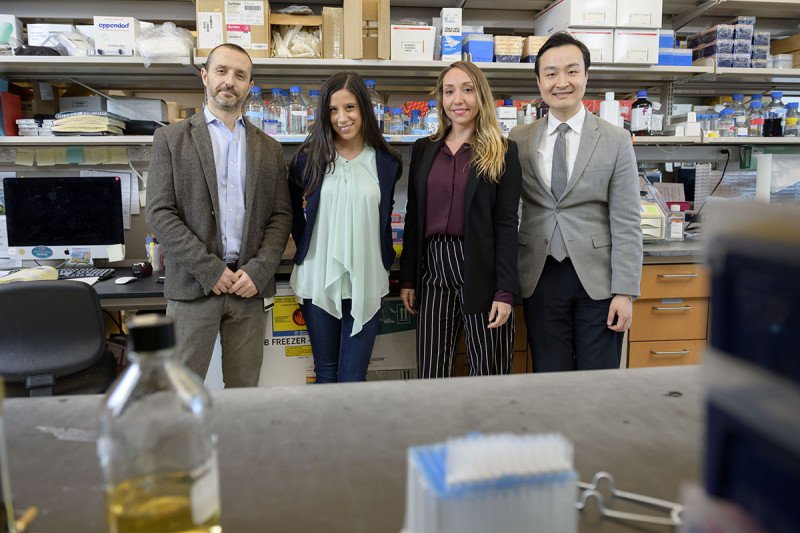Update: On August 12, 2022, the U.S. Food and Drug Administration (FDA) approved the drug trastuzumab deruxtecan (also known as T-DXd or Enhertu®) for the treatment of advanced non-small cell lung cancer (NSCLC) driven by mutant HER2. Trastuzumab deruxtecan, an antibody-drug conjugate, was previously approved for the treatment of HER2-positive breast cancer.
For people with HER2-positive breast cancer, targeted drugs, such as trastuzumab (Herceptin®), have greatly improved survival outcomes. These drugs work by blocking the HER2 protein on cancer cells, which inhibits their growth.
But for people with other types of HER2-positive cancers, these drugs have been less effective. Given the thousands of people who develop such cancers each year, new treatment options are badly needed.
One promising approach is a type of treatment called antibody-drug conjugates (ADCs). These medicines consist of a HER2-targeting antibody tethered to a toxin. The antibody is very good at finding HER2 in the body, and the toxin is good at killing whatever the antibody latches on to.
Because they deliver a toxin directly to the cancer cells, ADCs offer the potential to provide powerful results. In a phase I trial conducted at Memorial Sloan Kettering and several other hospitals in the US and Japan, doctors found that an ADC called trastuzumab deruxtecan (Enhertu®), also called T-DXd, was generally safe for humans. It showed encouraging signs of efficacy against several HER2-positive cancers, including colorectal, lung, biliary tract, endometrial, and salivary gland cancers.
Overall, 28% of people (17 of 60) responded to the treatment. HER2-mutant lung cancer responded the best, with 73% (8 of 11) showing at least a partial response. The side effects were mostly manageable, although two people died due to a drug-related side effect. The trial team was later able to develop ways to prevent or minimize the risk of severe side effects.
Because the early-phase study was small, additional larger studies are needed to validate these results, which were published on March 25 in the journal Cancer Discovery. But MSK medical oncologist Bob Li is optimistic: “We are very excited by the results of this preliminary study on targeting HER2 across multiple types of cancers,” he says. “T-DXd shows early promise for transforming the standard of care for people with HER2-overexpressing or HER2-mutant cancers, and we look forward to continuing this important research in future clinical trials.”
In a second set of findings, published in the same issue of Cancer Discovery, Dr. Li and MSK molecular biologist Maurizio Scaltriti, a member of both the Department of Pathology and the Human Oncology and Pathogenesis Program, led a team of doctors and scientists in a study of how HER2-targeted ADCs work on a molecular and cellular level.
Scientists already knew that these drugs carried out their cancer-killing effects by first binding to HER2 on the outside of a cancer cell and then being internalized (ingested) by the cancer cell. Using cell and animal models alongside tests in patients, the team found that cancers with a HER2 mutation or amplification internalized the fastest. The investigators also discovered that they could enhance the amount of ADC internalized by cancer cells by adding another drug into the mix. The ADC called ado-trastuzumab emtansine (Kadcyla®) is effective in treating people with HER2-mutant or amplified lung cancer, and the team learned that T-DXd enhanced this effect. By conducting laboratory experiments and clinical trial research in parallel, MSK doctors and scientists are leading the development of ADCs as a new class of cancer therapy for people with a variety of cancers.
The investigators suggest that their results can be extended to HER2-positive cancers that do not respond to trastuzumab as well. “Think of this approach as using HER2 as a Trojan horse to deliver enemies inside without tumor cells knowing it,” says Dr. Scaltriti. “We’re getting better and better at outsmarting their defenses.”
In February 2013 and May 2019, the US Food and Drug Administration approved ado-trastuzumab emtansine for two treatment indications of HER2-positive breast cancer. In December 2019, the FDA approved trastuzumab deruxtecan for treatment of HER2-positive breast cancer. Neither drug has been approved for other cancer types.





